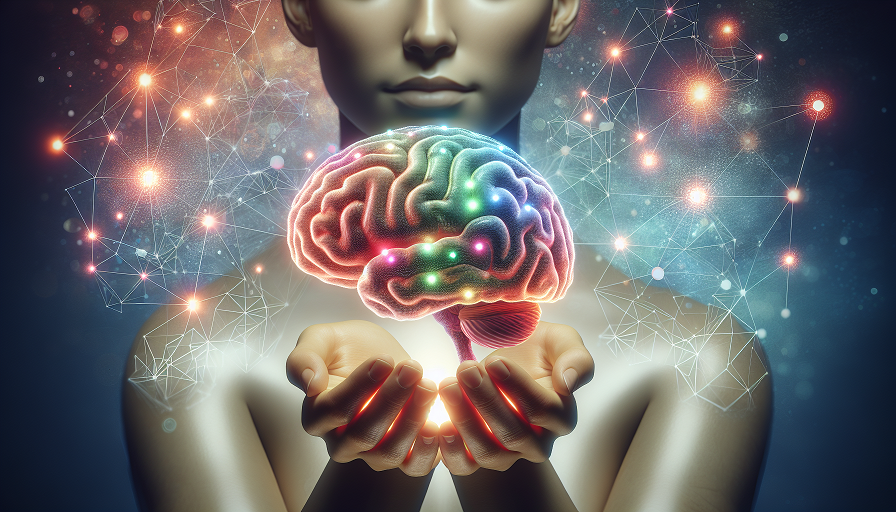
The concept of enhancing brain function has fascinated humans for centuries, and today, nootropics—often called “smart drugs” or “cognitive enhancers”—are at the forefront of this pursuit. These substances claim to boost memory, focus, and mental clarity, making them increasingly popular among students, professionals, and anyone looking for a cognitive edge. But how do nootropics work, and what does science say about their effectiveness?
Contents
What Are Nootropics?
Nootropics are substances designed to improve cognitive function, particularly in areas like memory, attention, creativity, and mental clarity. The term was first coined by Romanian psychologist and chemist Dr. Corneliu Giurgea in the 1970s, who defined nootropics as substances that:
- Enhance learning and memory.
- Protect the brain from physical or chemical injury.
- Improve the efficiency of neuronal firing.
- Exhibit minimal side effects.
Today, nootropics can be categorized into three main types:
- Prescription Nootropics: Drugs like Modafinil and Adderall that are used to treat conditions such as ADHD and narcolepsy but are sometimes used off-label for cognitive enhancement.
- Over-the-Counter Nootropics: Supplements like piracetam, ginkgo biloba, and bacopa monnieri that are marketed for cognitive support.
- Natural Nootropics: Plant-based compounds like caffeine, L-theanine, and omega-3 fatty acids that support brain health naturally.
How Nootropics Work: The Neuroscience
Nootropics target various biochemical processes in the brain to enhance cognitive performance. Here’s a closer look at the primary mechanisms behind their effects:
Modulating Neurotransmitters
Neurotransmitters are chemical messengers that transmit signals between neurons in the brain. They play a critical role in regulating mood, focus, and memory. Nootropics can influence neurotransmitter levels and activity in the following ways:
- Dopamine: Known as the “motivation molecule,” dopamine supports focus and reward-driven behavior. Nootropics like L-tyrosine boost dopamine levels, enhancing motivation and productivity.
- Acetylcholine: Essential for learning and memory, acetylcholine is increased by nootropics like piracetam and choline supplements.
- Serotonin: Often called the “feel-good neurotransmitter,” serotonin regulation by adaptogens like ashwagandha can reduce stress and improve mood.
Enhancing Neuroplasticity
Neuroplasticity refers to the brain’s ability to adapt, learn, and form new connections. Nootropics like lion’s mane mushroom and DHA (a component of omega-3 fatty acids) support neuroplasticity by promoting the growth of new neurons and synaptic connections. This is particularly beneficial for learning new skills or retaining complex information.
Increasing Blood Flow and Oxygenation
The brain requires a constant supply of oxygen and nutrients to function optimally. Nootropics like ginkgo biloba and vinpocetine enhance cerebral blood flow, ensuring that the brain receives the resources it needs for mental clarity and endurance.
Reducing Oxidative Stress
Oxidative stress occurs when there’s an imbalance between free radicals and antioxidants in the brain, leading to cellular damage. Antioxidant-rich nootropics like green tea extract and alpha-lipoic acid protect brain cells from this damage, supporting long-term cognitive health.
Balancing Stress Hormones
Chronic stress can impair focus and memory by disrupting cortisol levels. Adaptogens like rhodiola rosea and ashwagandha help regulate stress hormones, promoting a calm and focused mental state.
Scientific Benefits of Nootropics
Nootropics have been studied for their potential to improve various aspects of cognitive performance. Here are some of the most well-supported benefits:
Improved Memory
Nootropics like bacopa monnieri and piracetam have been shown to enhance both short-term and long-term memory, making them popular choices for students and professionals.
Enhanced Focus and Attention
Substances like caffeine and Modafinil are well-known for their ability to improve focus and sustain attention during demanding tasks or long study sessions.
Increased Energy Levels
Nootropics like rhodiola rosea combat mental fatigue by enhancing energy production in brain cells, allowing for sustained productivity.
Stress Reduction
Adaptogens such as ashwagandha and L-theanine help reduce stress and anxiety, supporting a calm mental state conducive to learning and problem-solving.
Enhanced Creativity
By improving neuroplasticity and boosting dopamine levels, some nootropics may also enhance creativity and innovative thinking.
Potential Risks and Limitations
While nootropics offer promising benefits, they are not without risks and limitations. Here’s what you need to consider:
Side Effects
Common side effects include headaches, nausea, and insomnia. Synthetic nootropics may pose greater risks if misused.
Lack of Regulation
Many over-the-counter nootropics are not regulated by the FDA, meaning their safety and efficacy can vary significantly.
Limited Research
While some nootropics are well-studied, others lack sufficient clinical trials to confirm their long-term effects.
How to Use Nootropics Safely
If you’re considering adding nootropics to your routine, follow these guidelines for safe and effective use:
- Consult a Healthcare Professional: Always seek medical advice before starting any new supplement.
- Start Small: Begin with low doses to assess your tolerance and response.
- Choose High-Quality Products: Look for reputable brands with third-party testing to ensure purity and potency.
- Pair with Healthy Habits: Maximize the benefits of nootropics by maintaining a balanced diet, regular exercise, and adequate sleep.
The science behind nootropics reveals their potential to enhance cognitive performance through mechanisms like improving neurotransmitter activity, increasing neuroplasticity, and reducing oxidative stress. While they offer promising benefits for memory, focus, and stress management, it’s crucial to approach them with caution. By understanding how nootropics work and using them responsibly, you can unlock their potential while minimizing risks. Remember, nootropics are not a substitute for a healthy lifestyle—they’re a tool that, when used wisely, can help you achieve your cognitive goals.

